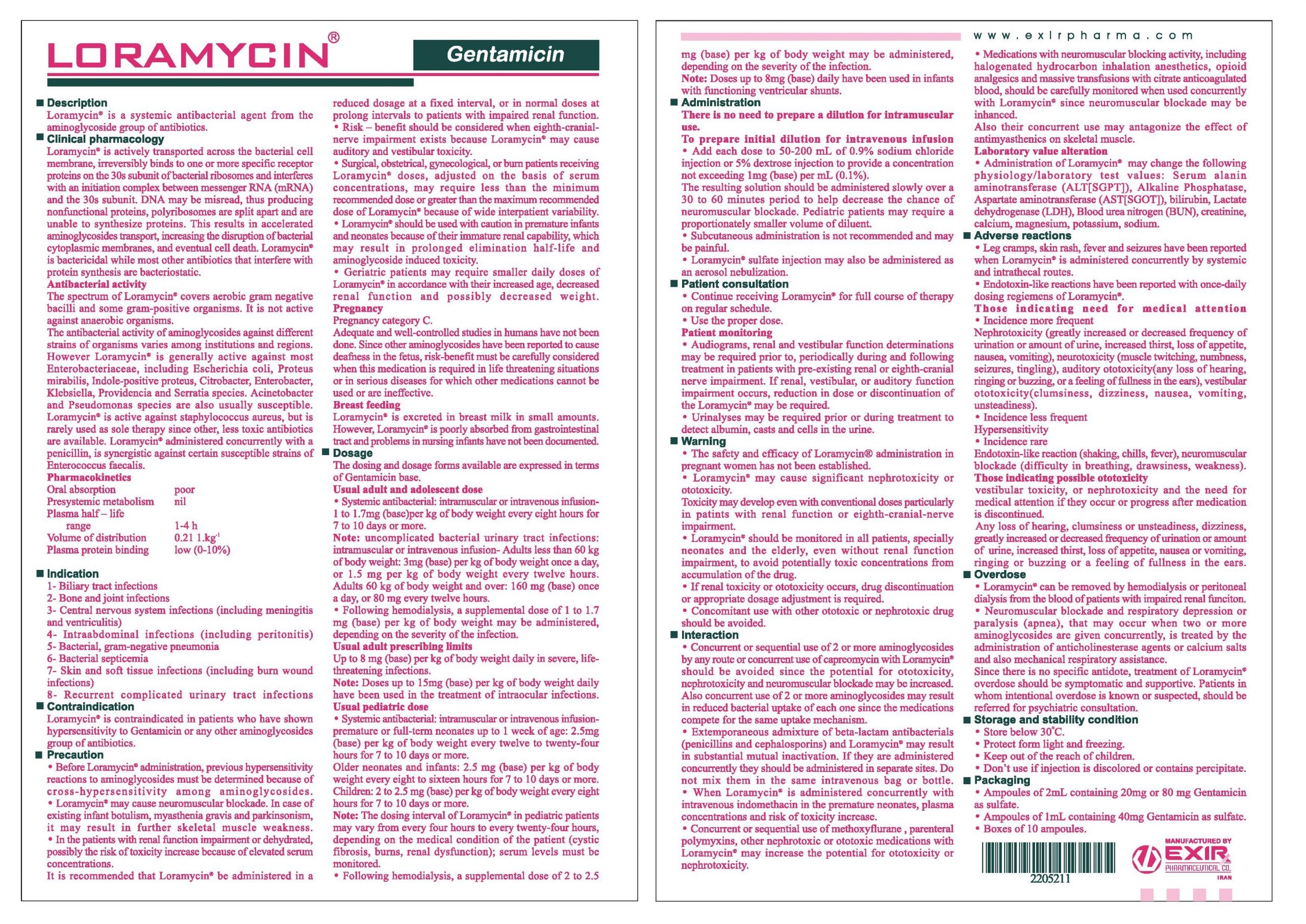GENTAMICIN 80-EXIR
Ampoule Gentamicin 80mg/2ml

| Generic Name of Product | Brand Name | Dosage Form | Strength | Pharmacologic Group | Therapeutic Group | Unit Per Pack |
| Gentamicin | Loramycin | Ampoule | 40/80 | Aminoglycoside | Antibacterial Agent | 10 |
Indications And Usage | To reduce the development of drug-resistant bacteria and maintain the effectiveness of Gentamicin Injection, and other antibacterial drugs, Gentamicin Injection, should be used only to treat or prevent infections that are proven or strongly suspected to be caused by susceptible bacteria. |
Administration | The recommended dosage of gentamicin injection for patients with serious infections and normal renal function is 3 mg/kg/day, administered in three equal doses every eight hours. |
Contraindications | Hypersensitivity to gentamicin is a contraindication to its use. A history of hypersensitivity or serious toxic reactions to other aminoglycosides may contraindicate use of gentamicin because of the known cross-sensitivity of patients to drugs in this class. |
Precautions | Prescribing Gentamicin Injection, in the absence of a proven or strongly suspected bacterial infection or a prophylactic indication is unlikely to provide benefit to the patient and increases the risk of the development of drug-resistant bacteria. |
Adverse Reactions | Symptoms include dizziness, vertigo, tinnitus, roaring in the ears and also hearing loss, which, as with the other aminoglycosides, may be irreversible. Hearing loss is usually manifested initially by diminution of high-tone acuity. Other factors which may increase the risk of toxicity include excessive dosage, dehydration and previous exposure to other ototoxic drugs. |
Pregnancy and lactation | Evidence of (probably reversible) damage to immature nephrons of the fetal kidney associated with use, and eighth cranial nerve damage associated with aminoglycoside exposure in utero have been reported. There are no controlled data in human |
Renal and liver Impairment | Adverse renal effects, as demonstrated by the presence of casts, cells or protein in the urine or by rising BUN, NPN, serum creatinine or oliguria, have been reported. They occur more frequently in patients with a history of renal impairment (especially if dialysis is required) and in patients treated for longer periods or with larger doses than recommended. |
Laboratory Tests | - |

